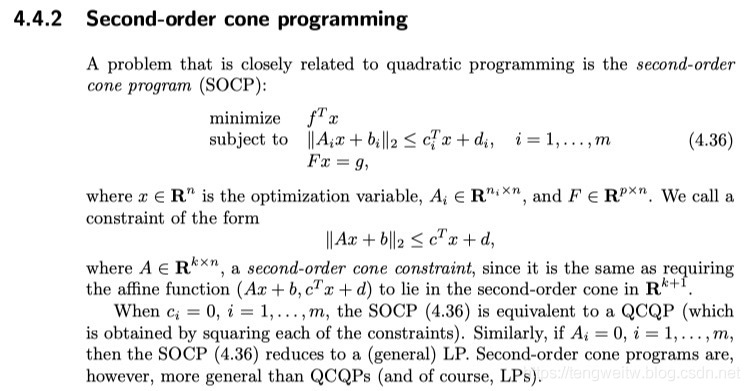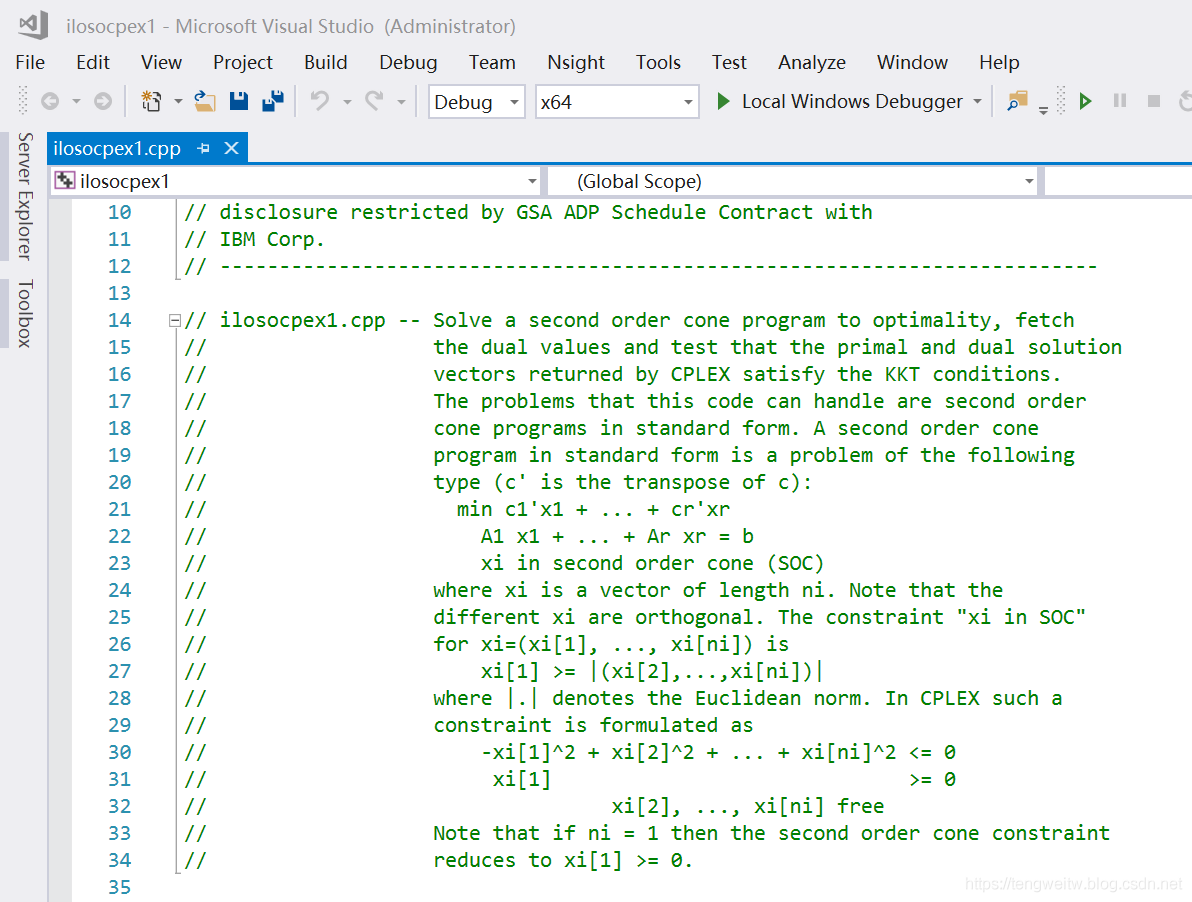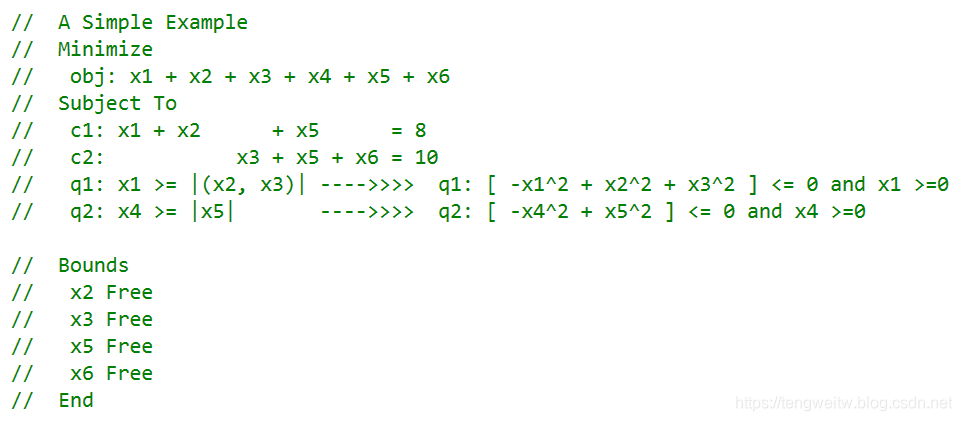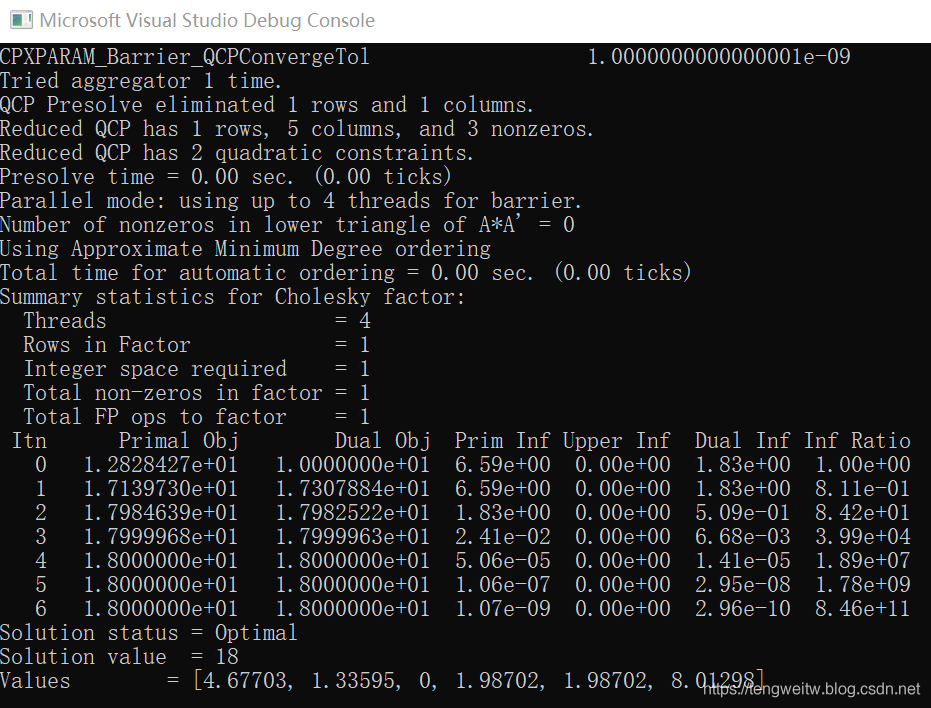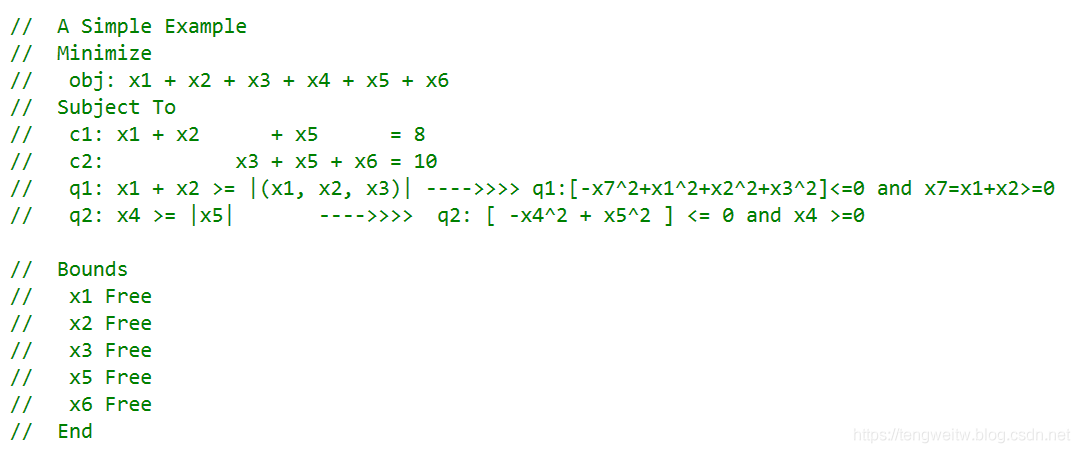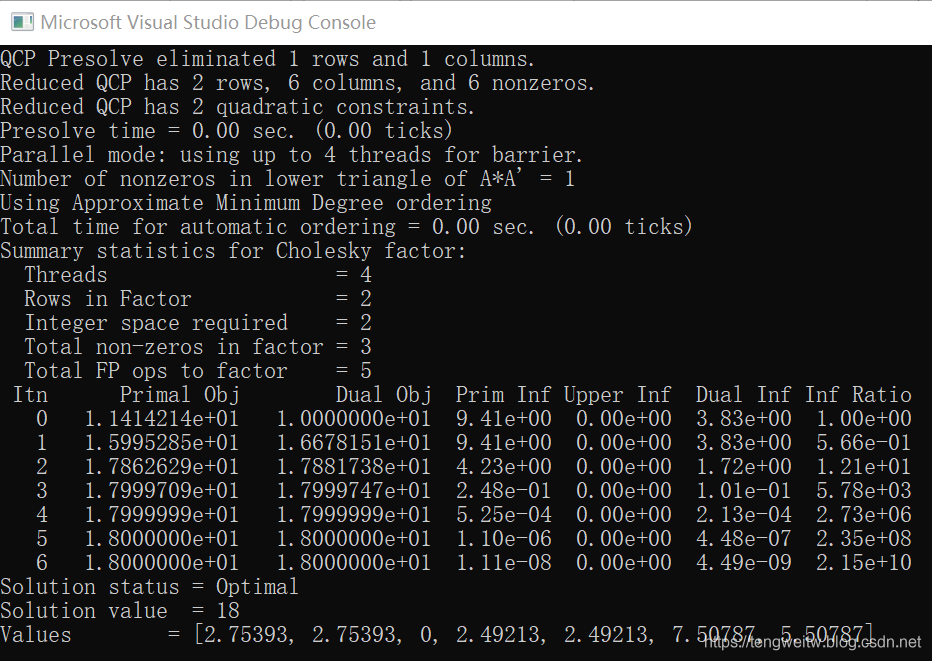1
2
3
4
5
6
7
8
9
10
11
12
13
14
15
16
17
18
19
20
21
22
23
24
25
26
27
28
29
30
31
32
33
34
35
36
37
38
39
40
41
42
43
44
45
46
47
48
49
50
51
52
53
54
55
56
57
58
59
60
61
62
63
64
65
66
67
68
69
70
71
72
73
74
75
76
77
78
79
80
81
82
83
84
85
86
87
88
89
90
91
92
93
94
95
96
97
98
99
100
101
102
103
104
105
106
107
108
109
110
111
112
| #include <cmath>
#include <string>
#include <iostream>
#include <ilcplex/ilocplex.h>
ILOSTLBEGIN
#define TESTTOL 1e-9
#define CONVTOL 1e-9
static void
createmodel(IloModel& model, IloObjective &obj, IloNumVarArray &x,
IloRangeArray &rngs, IloIntArray& cone)
{
IloEnv env = model.getEnv();
x.add(IloNumVar(env, -IloInfinity, IloInfinity));
x.add(IloNumVar(env, -IloInfinity, IloInfinity));
x.add(IloNumVar(env, -IloInfinity, IloInfinity));
x.add(IloNumVar(env, 0, IloInfinity));
x.add(IloNumVar(env, -IloInfinity, IloInfinity));
x.add(IloNumVar(env, -IloInfinity, IloInfinity));
x.add(IloNumVar(env, 0, IloInfinity));
obj = IloMinimize(env, x[0]+x[1] + x[2] + x[3] + x[4] + x[5]);
model.add(x[0] + x[1] + x[4]==8);
model.add(x[2] + x[4] + x[5]==10);
model.add(x[6] - x[0] - x[1] == 0);
model.add(-x[6] * x[6]+ x[0] * x[0] + x[1] * x[1] + x[2] * x[2]<=0);
double a[] = {0,0,0, -1,1 };
IloExpr temp(env);
for (IloInt i = 3; i < 5; i++)
{
temp += a[i] * x[i] * x[i];
}
model.add(temp <= 0);
temp.end();
model.add(obj);
}
int
main(void)
{
IloEnv env;
int retval = -1;
try {
IloModel model(env);
IloCplex cplex(env);
IloObjective obj(env);
IloNumVarArray vars(env);
IloRangeArray rngs(env);
IloIntArray cone(env);
createmodel(model, obj, vars, rngs, cone);
cplex.extract(model);
cplex.setParam(IloCplex::Param::Barrier::QCPConvergeTol, CONVTOL);
if (!cplex.solve() || cplex.getStatus() != IloAlgorithm::Optimal)
throw string("Failed to solve problem to optimality");
IloNumArray vals_x(env);
env.out() << "Solution status = " << cplex.getStatus() << endl;
env.out() << "Solution value = " << cplex.getObjValue() << endl;
cplex.getValues(vals_x, vars);
env.out() << "Values = " << vals_x << endl;
env.end();
}
catch (IloException &e) {
cerr << "IloException: " << e << endl;
if (env.getImpl())
env.end();
::abort();
}
catch (string& e) {
cerr << e << endl;
if (env.getImpl())
env.end();
::abort();
}
return retval;
}
|
